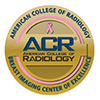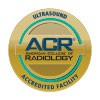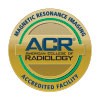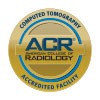At Atlantic Health System’s radiology departments, we offer interventional radiology – a non-surgical alternative to treat conditions that typically require surgery, including tumors, fibroids and gallstones, among others. It is often used in conjunction with other imaging techniques, such as fluoroscopy.
Most interventional radiology procedures are performed on an outpatient basis or require only a short hospital stay. General anesthesia is usually not required and pain and recovery time may be significantly reduced.
Our staff of board-certified, fellowship-trained interventional radiologists, radiology registered nurses and radiologic technologists is highly experienced in providing the most minimally invasive, targeted treatments.
Treatments include:
- Angiography
- – an X-ray that uses a catheter and a contrast agent or X-ray dye to visualize arteries and veins
- Angioplasty
- – widens narrowed blood vessels through the use of a small inflatable balloon
- Biliary interventions
- – uses stents or small, mesh tubes to treat blocked or narrowed bile ducts
- Biopsies
- – removes small tissue samples for diagnostic purposes
- Central venous or vascular access
- – delivers medication and nutrients directly into the blood stream through a tube inserted in a vessel; also known as portacath, tunneled dialysis, permcath and peripherally inserted central catheter (PICC)
- Gastrostomy tube
- – provides nutrients directly to the stomach of patients who cannot eat through their mouth
- Hemodialysis access maintenance
- – uses a small balloon catheter to open blocked grafts so that hemodialysis or kidney failure treatment can be performed
- High blood pressure treatment
- – prevents renal hypertension by using a small balloon catheter to open arteries in the kidneys
- Inferior vena cava (IVC) filters
- – placed in major blood vessels to prevent blood clots from traveling to the lungs
- Internal bleeding treatment
- – locates areas of internal bleeding and injects a clotting substance through a catheter to stop it
- Percutaneous nephrostomy catheters
- – used to drain the kidneys, often to relieve an obstruction
- Fluid drainage system
- – enables patients to drain recurrent fluid collections in the lungs or abdomen from home
- Radiofrequency ablation
- – destroys cancerous tumors using radiofrequency energy
- Thrombolysis
- – dissolves blood clots by injecting drugs at the site
- Transjugular intrahepatic portosystemic shunt (TIPS)
- – a channel placed in the liver to treat esophageal bleeding or the collection of abdominal fluid
- Uterine fibroid embolization
- – a minimally invasive alternative to hysterectomy to treat symptomatic uterine fibroids
- Varicocele embolization
- – a procedure used to relieve pain, pressure or infertility caused by an enlarged vein in the scrotum
- Vena cava filter
- – dissolves blood clots before they reach the lungs or heart by inserting a tiny, cage-like device into a vessel
- Y90-yttrium
- – treats tumors of the liver by injecting radioactive materials into the artery that supplies blood flow to the affected area
Preparing for Interventional Radiology
Preparation varies by procedure; a nurse will contact each patient with specific instructions prior to treatment.
Interventional radiology services may vary by location. Please confirm when booking an appointment.
Locations
-
Chilton Medical Center
-
Interventional Radiology
-
97 West Parkway
Pompton Plains, NJ 07444
- 973-831-5089
- Monday through Friday, 8:00am to 4:00pm
-
97 West Parkway
-
Hackettstown Medical Center
-
Interventional Radiology
-
651 Willow Grove Street
Hackettstown, NJ 07840
- 908-850-6842
- Call for availability
-
651 Willow Grove Street
-
Morristown Medical Center
-
Interventional Radiology
-
100 Madison Avenue
Level D
Morristown, NJ 07960
- 973-971-5830
- Monday through Friday, 7:30am to 4:00pm
-
100 Madison Avenue
-
Newton Medical Center
-
Interventional Radiology
-
175 High Street
First Floor
Newton, NJ 07860
- 1-844-264-2250
- By appointment only.
-
175 High Street
-
Overlook Medical Center
-
Interventional Radiology
-
99 Beauvoir Avenue
Summit, NJ 07901
- 908-522-3524
- Daily, 8:00am to 4:30pm
-
99 Beauvoir Avenue
Our Interventional Radiology Medical Team






